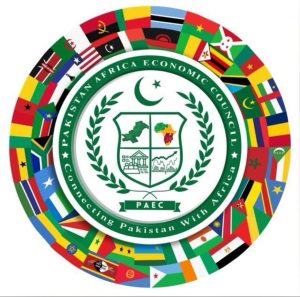A new chapter begins: citizens call Paharpur’s district status a historic milestone
FIA advises public to ignore unverified off-loading claims, Follow official sources only
Musadik Malik calls for urgent climate resilience measures at AKU conference
Pakistan Africa Economic Council appoints Muhammad Murtaza Noor as General Secretary

President expresses condolences over loss of life in Southeast Asia floods
ISLAMABAD: Nov 30 (APP): President Asif Ali Zardari, Sunday, expressed deep sorrow over the loss of life and widespread displacement caused by severe flooding across Southeast Asia.
The president said the tragedy, which claimed hundreds of lives and left many missing, brought great distress to the people of Pakistan.
He conveyed heartfelt condolences to the families who have lost loved ones and to the governments and people of Indonesia, Malaysia and Thailand, President Secretariat Media Wing said in a press release.
The president noted that Pakistan understood the pain and uncertainty caused by such disasters, as it continued to face climate driven catastrophes of its own.
He said the scenes of submerged communities and families forced from their homes were a reminder of shared human vulnerability and the growing impact of extreme weather across the region.
President Zardari said Pakistan would stay closely engaged with regional partners and international organisations to explore practical ways of offering support within its means.
He said Pakistan stood by the affected countries as they navigate this crisis.
He prayed for the departed and for the safe recovery of those missing.
LHC orders issuance of character certificate after conviction cleared in minor case
Fog fever threatens animals’ health
Fatimid Foundation center begins blood transfusion services for Thalassemia patients in DI Khan
President pays tribute to Shaheed ZAB, Benazir on PPP Foundation Day
ISLAMABAD, Nov 30 (APP): President Asif Ali Zardari, Sunday, paid tribute to Shaheed Zulfikar Ali Bhutto and Benazir Bhutto, former prime ministers, saying that the struggle of Pakistan Peoples Party (PPP) had strengthened democracy in Pakistan.
In a message on the 58th Foundation Day of PPP, he said that resistance against dictatorship and the restoration of public rights were the historic achievements of PPP.
“The unanimously adopted Constitution of 1973 was a historic gift from Shaheed Bhutto,” President Secretariat Press Wing, in a press release, quoted the president as saying.
The PPP remained committed to a tolerant and progressive Pakistan, he added.
He said the PPP had played a key role in the stability of the federation and national unity, adding reforms in Gilgit-Baltistan and Azad Kashmir were the other important accomplishments of the PPP.
The president further said that foundation of the country’s nuclear programme was laid by the PPP while land reforms, labour rights, education reforms and social justice were the hallmarks of the party.
“From MRD to ARD, PPP has been the architect of democratic evolution,” he observed.
President Zardari said the Charter of Democracy and the 18th Amendment were also a part of the PPP’s democratic legacy, adding the inclusion of PPP in the National Action Plan was significant.
He said the PPP had always been the voice of workers, farmers, women, and minorities. Inclusion of marginalized communities was central to the mission of the party, he added.
“There is a need to renew commitment to democracy, equality and social justice,” he stressed.
The president said empowerment of women and minorities was a guarantee for Pakistan’s bright future, urging party’s workers to maintain democratic unity.
Pakistan rejects UNHC for Human Rights’ baseless statement
ISLAMABAD, Nov 30 (APP): Pakistan noted with deep concern the ungrounded and misplaced apprehensions aired on behalf of the United Nations High Commissioner for Human Rights regarding the 27th constitutional amendment adopted by two-third majority of the parliament of Pakistan.
“Like all parliamentary democracies, all legislation as well as any amendment to the Constitution remains the exclusive domain of the elected representatives of the people of Pakistan. Democracy and democratic methods form the bedrock of civil and political rights and therefore, must be respected,” the Foreign Office Spokesperson, on Sunday, said in a press statement.
The constitutional amendments adopted by the Parliament of Pakistan followed due procedures as enshrined in Pakistan’s Constitution.
“We urge the High Commissioner to respect the sovereign decisions of Pakistan’s parliament and avoid commentary that reflects political bias and misinformation,” it was further asserted.
The spokesperson further said that Pakistan remained fully committed to protecting, promoting and upholding human rights, human dignity, basic freedoms and the rule of law as enshrined in the constitution of Islamic Republic of Pakistan.
While Pakistan gives due importance to the work of the High Commissioner for Human Rights, it was regrettable that Pakistan’s views and ground realities were not reflected in the statement issued.










